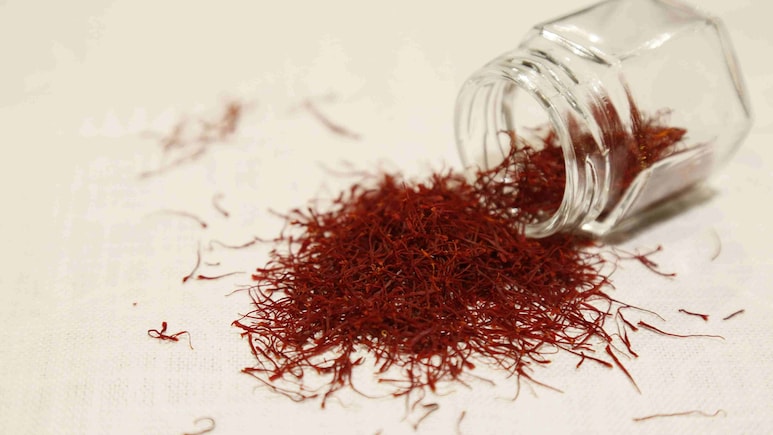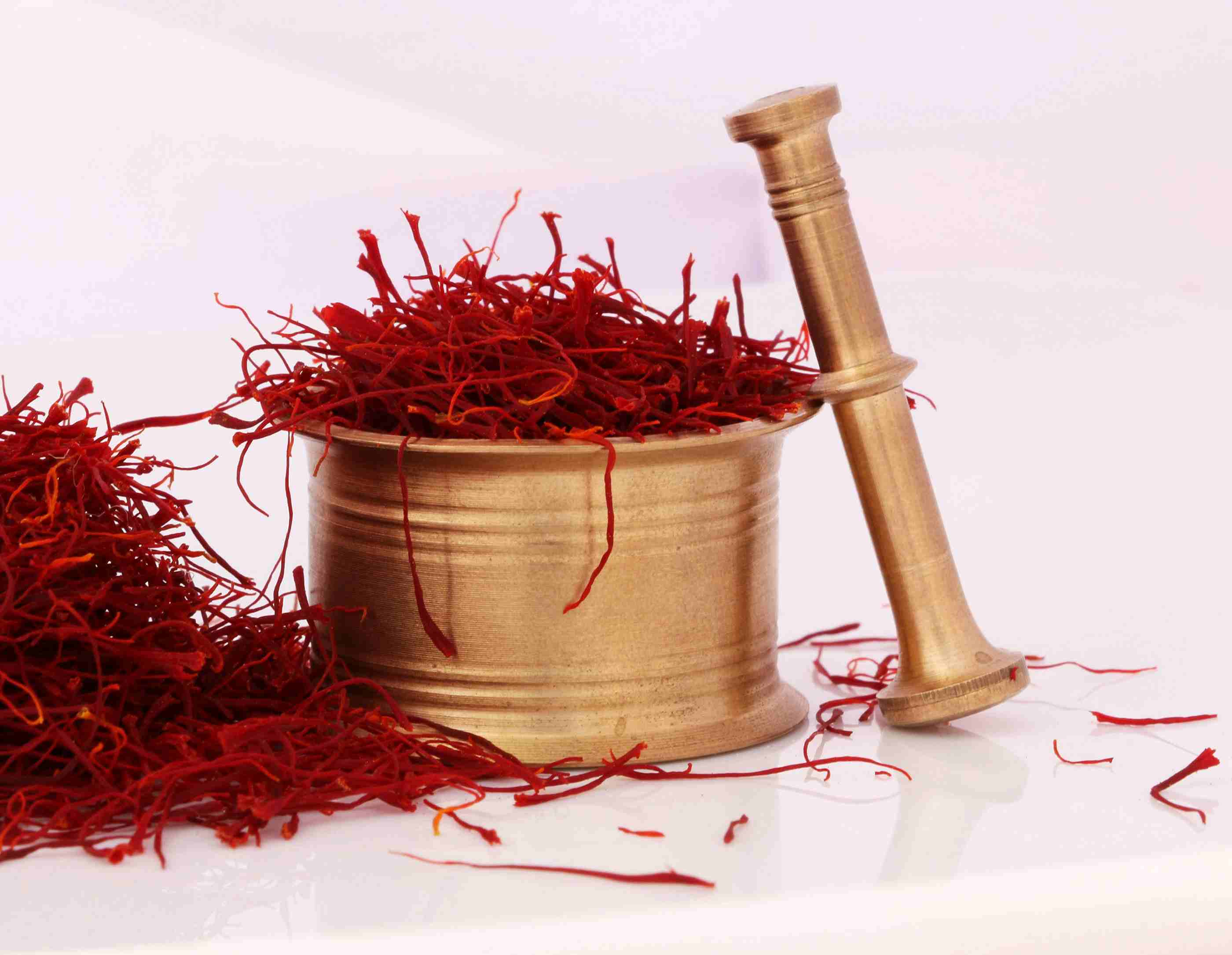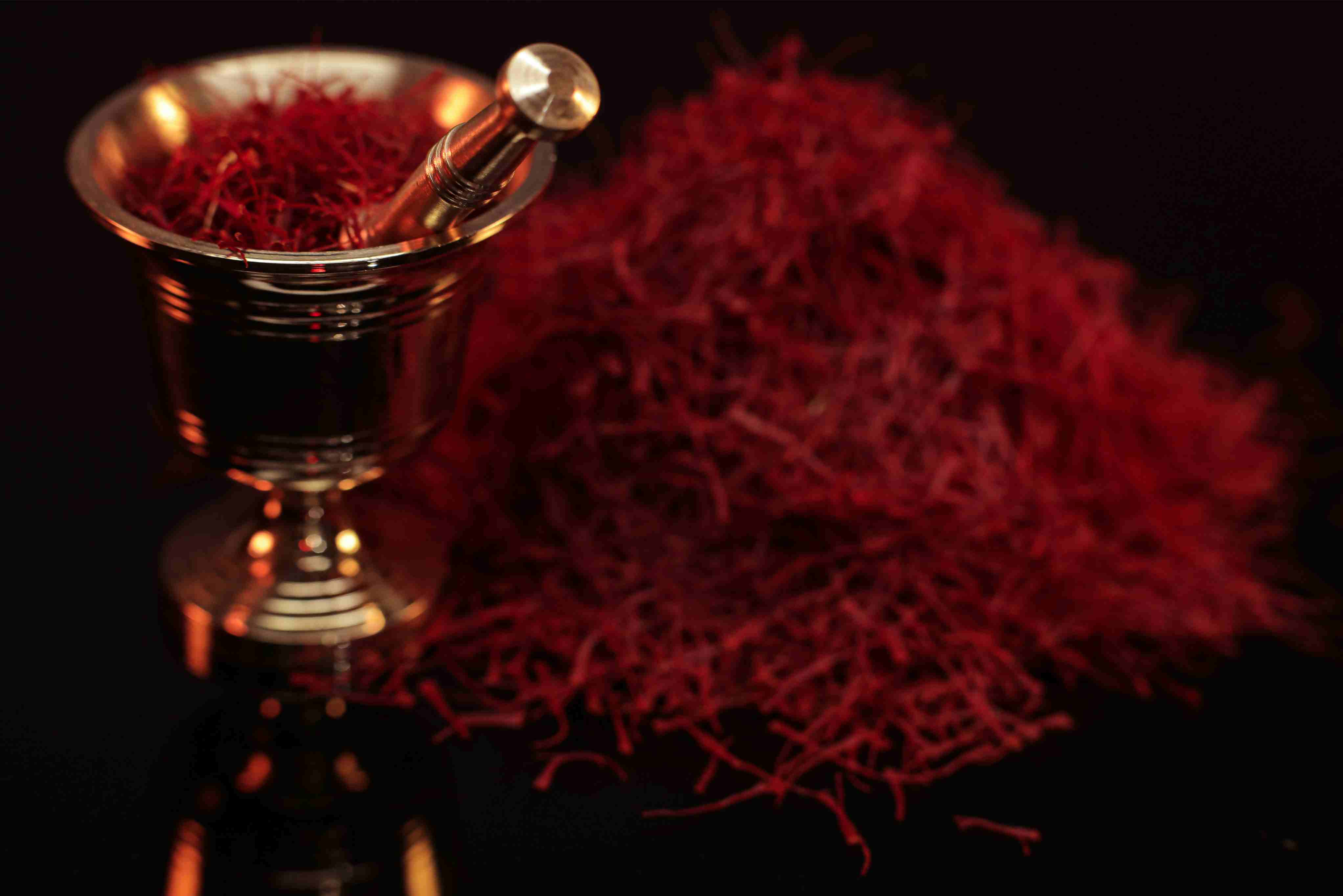
Over the last few years, saffron, a bright-hued spice long used in Indian cooking and traditional remedies, has experienced a rebranding.
Health coaches, holistic influencers and supplement companies are now marketing saffron as a natural cure for everything from hyperpigmentation to heart diseases. Now, it seems like it is gaining attention for its impact on mental health, from anxiety to chronic depression.
Social media is filled with stories about how saffron has an impact on not only improving mood, but can also help with anxiety and depression.
But can it really help with mental health or is it just another social media fad?
What Experts Say
Dr Archana Batra, a Dietician and Certified Diabetes Educator, explains that saffron contains two major bioactive compounds: crocin, which gives the spice its colour; and safranal, responsible for its distinct aroma. Both are believed to influence neurotransmitters like serotonin and dopamine, which regulate mood and emotions.
That's one reason saffron (which sells for Rs 4.95 lakh a kilogram) has found its way into capsules, teas, tinctures, and even gummies, all promising better sleep, less anxiety, and an overall lighter mental state.
Interestingly, there is some research that gives saffron more credibility than most wellness fads.

The global saffron market was valued at USD 602.2 million in 2023. Photo: Unsplash
Several studies have concluded that saffron supplements significantly improved depressive symptoms in individuals with mild to moderate depression.
Another study compared the effects of saffron to fluoxetine (commonly known as prozac) and found that saffron performed just as well over a short-term trial, though with fewer reported side effects.
However, Dr Astik Joshi, Child Adolescent and Forensic Psychiatrist at Fortis Hospital Shalimar Bagh, says, "Saffron may have real potential as a natural mood booster. But most of these studies are small, short-term and need more rigorous follow-up. We can't recommend it as a mainstream treatment for clinical depression just yet."
According to Dr Joshi, the appeal of saffron lies in its 'natural' label and the perception that it's safer than pharmaceutical antidepressants.
"People are increasingly looking for holistic, non-pharmaceutical ways to manage their emotional wellbeing. Saffron is being marketed as one such lifestyle solution. You see short viral videos showing how someone's mood improved after two weeks of saffron capsules. While compelling, these are anecdotal and not the same as clinical evidence," he adds.
Is It Safe To Take Saffron Daily
Here's the twist: while saffron is largely safe when used in small amounts in food, excessive consumption can be harmful. Experts agree that dosage matters.
"Overdoing saffron can lead to dizziness, nausea, and allergic reactions," says Dr Batra.
Saffron's role as a supplement should be discussed with a healthcare provider, especially if someone is already on medication or experiencing moderate to severe depression, according to her.
Just because it's available in a gummy (it is available for kids as well) or can be added to a latte doesn't make it harmless. Like most herbal remedies, saffron supplements can interact with medications or worsen symptoms if misused.
"Supplements should never be self-medicated, especially when it comes to mental health," says Dr Joshi.
"Saffron might be useful as an adjunct, not a replacement, for professional therapy or prescription medication," he adds.
Some Other Benefits Of Saffron
The benefits of saffron aren't just limited to depression. Some studies have shown that saffron can help with premenstrual syndrome (PMS) and may improve sleep quality -- both of which directly impact emotional wellbeing.

Saffron market is also booming in India. Photo: Unsplash
"There's promising research indicating that saffron may help regulate menstruation-related mood changes and even aid better sleep. These effects could indirectly support better mental health. However, we still need more evidence on long-term safety," says Dr Batra.
That said, saffron is not a substitute for hormone therapy, sleep medication or psychiatric treatment. But for those with mild symptoms, it could be a gentle, natural support, if used correctly.
Is It Worth The Hype?
Saffron's rise as a natural antidepressant is not entirely baseless. There's scientific interest in its potential role in supporting mental wellness, particularly in mild cases of anxiety and depression. It may also offer secondary benefits like improved sleep, hormonal balance and antioxidant support.
But is it the miracle cure social media is selling it as? Not quite.
"People want simple answers to complex problems. Saffron feels like an easy fix, natural, traditional and luxurious. But no herb, spice or supplement can replace the need for professional intervention when it comes to mental health," says Dr Batra.
In the end, saffron might be a helpful addition to your routine, something that adds both flavour and calm to your day, but treating depression or anxiety requires more than a few strands soaked in warm milk.
Track Latest News Live on NDTV.com and get news updates from India and around the world

